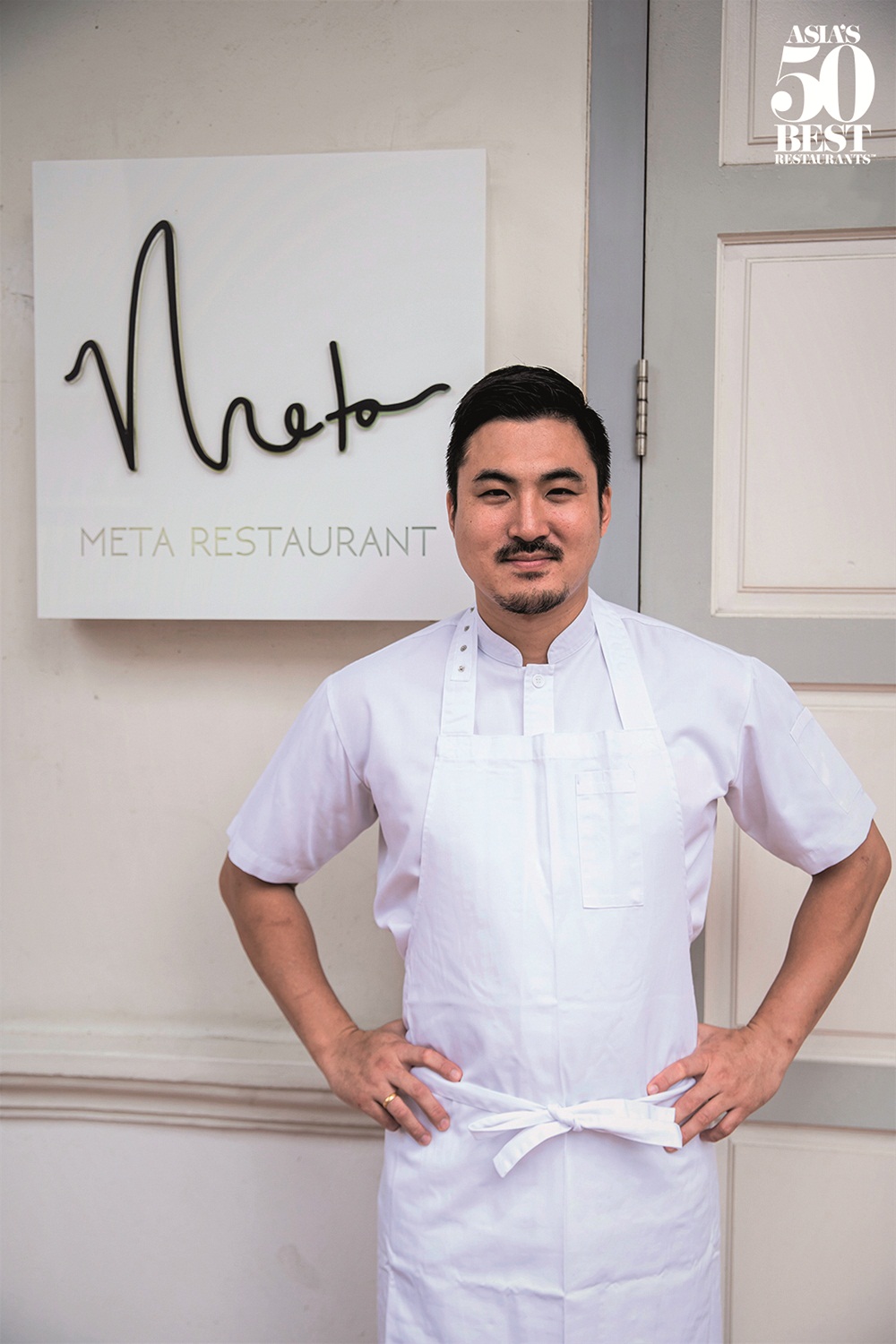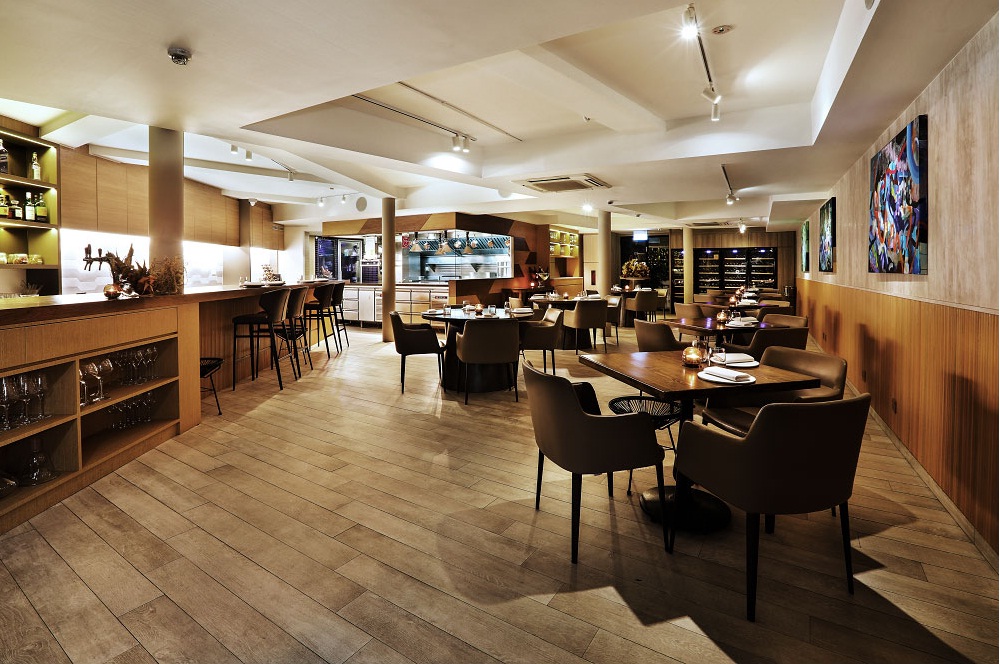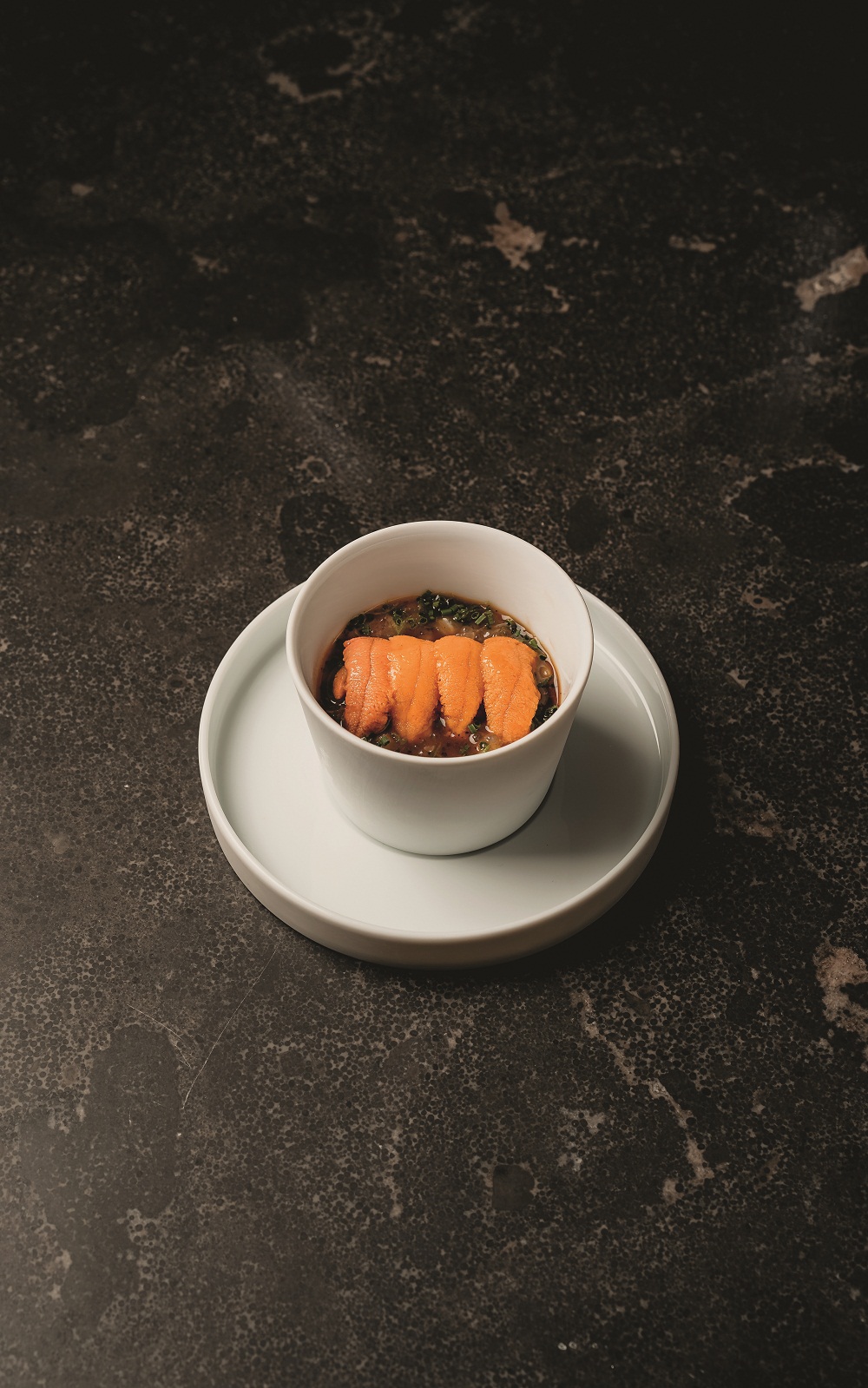Chef Sun Kim’s culinary journey has been nothing short of being transformative as his restaurant Meta symbolises and celebrates the metamorphosis of a chef finally coming into his own.

Born in Busan, Korea, chef Sun Kim grew up amid the F&B business as his mother was a restaurateur. He soon caught the cooking bug from her as she cultivated his love for food from a very tender age.
Sun moved to Seoul to further his culinary career, and the turning point soon came when he chanced upon a copy of Tetsuya in 2008. He was profoundly inspired by the food featured in the book, feeling a deep connection with chef Tetsuya Wakuda’s culinary vision. “The idea of a Japanese chef cooking modern Australian cuisine was completely new to me and something that I wanted to learn. I read the book every day until I got to the point where the only way I could learn more was to move to Sydney and work with chef Tetsuya himself. That was my dream job,” he says. Determined to learn from the best, the young South Korean-born chef moved from Seoul to Sydney when he was only 26 years old, unable to speak a word of English, but on an unstoppable mission to bag a job at renowned restaurant Tetsuya’s.
.jpg)
Earlier this year, his Singapore-based restaurant Meta was awarded the American Express One to Watch Award for Asia’s 50 Best Restaurants 2021. The award is recognition for the culmination of a decade of Sun’s experience amassed from working at top restaurants and tutored by the some of the best chefs in the world.
Sun worked at Tetsuya’s for two years as a junior sous chef before taking on the same role at the launch of Waku Ghin in Singapore in 2010. “Chef Tetsuya is still my mentor and my biggest inspiration,” says Sun. “I’m inspired by how he blends Asian and Western techniques. The most important thing I learned from him was to focus on the flavour of fresh ingredients, which was what I wanted to do when I opened my own restaurant.”
Sun launched Meta in December 2015 and was awarded a Michelin star in 2017, an accolade that he retained consecutively in 2018 and 2019. After shuttering his casual spin Kimme last year due to the pandemic, the 38-year-old chef turned all his attention to Meta, creating hearty menus that reflected his innovative culinary style, and showcasing perfectly balanced dishes based on his Korean heritage, travels and culinary experiences. For instance, one of Sun’s signature dish is his take on chawanmushi, where puréed cabbage is blended with an egg mixture to make a custard. The mixture is then topped with pork trotter jus mixed with homemade kimchi. Uni, truffle lime zest and Australian finger limes complete the creation.
What does winning the American Express One to Watch Award 2021 mean to you in your culinary journey so far?
It means a lot to me and my team and me. We have always been pushing ourselves hard, and even harder since the pandemic hit. Being recognised internationally is a good opportunity to showcase our unique cuisine to the world. My cooking style is best described as French technique coupled with Asian passion from Korea, delivering a refined take on East-meets-West cuisine.
How apt is the word Meta as you’ve transformed from an underdog into one of Asia’s most promising culinary stars?
I opened Meta when I was 31 years old, and every step was a learning curve for me and my team. Even up until this day I am still learning. Meta means transformation, and starting Meta, I wanted to serve my style of food to our customers, and we were received greatly. When we got our Michelin star within the second year of opening, we were ecstatic. The time I spent with chef Tetsuya has further refined my culinary techniques, giving me the confidence to push culinary boundaries, while remaining true to the natural flavours of the produce.

Tell us some of your fondest food memories.
Busan is famous for its seaside location, and right next to my house, there was a seafood market. Growing up eating amazing quality seafood cooked by my mother are some of my fondest memories. By returning to my Korean roots now, the inspiration for my dishes goes all the way back to watching my mother cook. Now I’m adding another layer to that by grafting those roots with the contemporary techniques I have learnt from chef Tetsuya.
What was it in Tetsuya’s book that was a turning point for you?
I was curious about working in one of the best restaurants in the world. It opened my eyes to a new type of cuisine that I have never seen before. I decided I wanted to start my fine dining culinary journey there. To become a great chef, it is important to constantly evolve and expand your world view. You need to expose yourself to different experiences be it food, art or travel, and to be able to present diners with innovative and new creations.
How do you want people to remember your style of Korean dishes?
At Meta, my philosophy is modern interpretations of traditional Korean dishes and creative use of Asian ingredients. My style of Korean dishes still have the hearty feeling that people have associated with Korean food, but after having lived in Singapore for seven years now, I have learnt how to in incorporate other Asian ingredients in my menu. I want diners to understand Korean flavours and cuisine even more and go deeper. Most people think that Korean food is mainly kimchi and spicy food, but there are much more flavours, textures and depth when it comes to Korean food. We are introducing traditional Korean elements to dishes rather than just serving kimchi with everything. Because of that, we change our menu seasonally every three months as there are certain ingredients that you can only get in specific months of the year.
